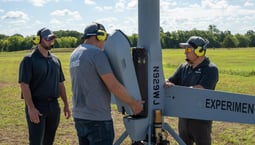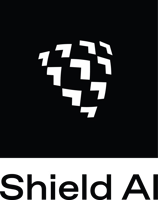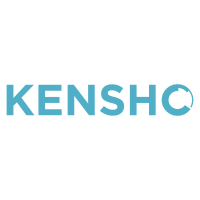What you'll do:
- Research and develop state-of-the-art state estimation and navigation algorithms to enable resilient autonomy in challenging GPS-denied environments.
- Design and deploy production-grade C++ software for embedded robotic systems operating in dynamic, real-world environments.
- Build and maintain rigorous unit, integration, and system-level tests to ensure system robustness and safety.
- Develop and enhance modeling, calibration, and simulation tools for inertial and vision-based navigation systems.
- Contribute to roadmap planning, feature decomposition, and agile execution alongside a multidisciplinary team of autonomy engineers.
- Continuously enhance performance analysis, benchmarking, and validation pipelines to drive rapid innovation and improvement.
Required Qualifications:
- M.S. in Aerospace Engineering, Electrical Engineering, Robotics, Computer Science or a related field; Minimum 2+ years of related professional work experience if you have an M.S degree or 0 years if you have a new Ph.D graduate.
- Professional proficiency in modern C++ (C++11 or newer) and strong object-oriented design skills.
- Hands-on experience deploying low-latency C++ applications to embedded Linux platforms.
- Professional experience designing and implementing state estimation algorithms (e.g., EKF, UKF, Graph-based optimization).
- Familiarity with VIO, SLAM, or multi-sensor fusion frameworks (e.g., gtsam, Ceres, OpenVINS).
- Strong working knowledge of CI pipelines and automated testing frameworks for C++.
- Ability to independently deploy high-reliability code suitable for real-world autonomous systems.
- Familiarity with prototyping in Python or MATLAB is welcome, but this role demands professional C++ production deployment skills. Candidates whose primary experience is in MATLAB or Python are unlikely to find this position a good fit.
Preferred Qualifications:
- Deep understanding of graph-based optimization for state estimation.
- Experience developing vision-aided inertial navigation systems (VINS, VIO).
- Experience with navigation sensor calibration (IMU, GPS, barometers, magnetometers, laser altimeters).
- Experience in benchmarking and system validation for real-world navigation performance.
Note:
- Candidates will be asked to complete a practical C++ coding exercise as part of the interview process to demonstrate advanced proficiency in software design and system implementation.
Top Skills

What We Do
Founded in 2015, Shield AI is a venture-backed defense technology company with the mission of protecting service members and civilians with intelligent systems. Its products include the V-BAT aircraft, Hivemind Enterprise, and the Hivemind Vision product lines. With offices in San Diego, Dallas, Washington, D.C., Boston, Abu Dhabi (UAE), Kyiv (Ukraine), and Melbourne (Australia), Shield AI’s technology actively supports U.S. and allied operations worldwide.
Why Work With Us
What makes Shield AI special is our people. We unlock the power of autonomy, and in the face of overwhelming odds and challenges, we find ways to win and make a difference for our customers. We bring together software, AI, and aerospace engineering disciplines to deploy the most intelligent aviation capabilities in the world.
Gallery










